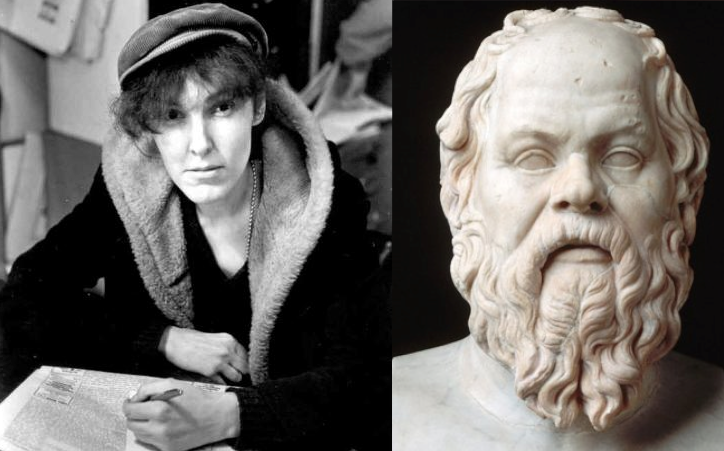People have a strange vision of me. I’m going to set a few things straight real quick.
I was an anarchist pacifist two years ago, I was an anarchist pacifist two months ago, I’m an anarchist pacifist right now, and I probably will be one until I go to my grave. I didn’t get fired for what I believe or what I’ve done, because none of that ever really came up. I got fired because of the language I used when I was working with Anonymous in 2011-12, and because I believe in engaging with racists instead of shunning them. On a personal level, my friends can tell you, it’s not just racism. I’m not an easy friend. I confront a lot of difficult topics head on, and I can be in turns comforting and challenging. If I am worried you are going to far with drugs or alcohol, I will tell you. If I think your relationship is fucked up, you’ll understand why I think that. If I think the road you are going down leads to dark ruin, a wasted life, and only makes the people who ruined you more powerful, well, weev, you know that’s what I think.
I don’t give up on people. I have in the past. I told my dad he was a failure as a father in a mall in Northern California, and the next time I saw him, I was identifying his body. I told Aaron we needed to be apart, and when I could have warned people that he would try to kill himself I was 6000 miles away. I have lost so many people, and I will lose more, but it will never again be because I didn’t try. And that’s true of this whole damn world. We may lose it, but not because I didn’t try.
I am not a conservative. Conservatism in an age of calamities can only be about death, and I have had enough of death. I’m not a proper lefty. The left as I know it doesn’t afford enough agency to people who came up hard. To my mind, “everything is systemic, nothing is personal” is as bankrupt as “everything is personal, nothing is systemic.” Everything is both, all the damn time. You have to live with that, you have to live with no easy answers. I am much more persuaded by lefists who work their politics in the street, taking care of people in need, like trying to shut down prisons, instead of cheering when the bad guys get put in them. I am more persuaded by conservatives who practice hospitality and Christian charity towards all, including people who aren’t like them, because that’s what hospitality and Christian charity means.
The public made me into a boogyman, and then people cheered when the Times accidentally mugged my career. I didn’t apologize for that, and I’m not going to apologize for doing what I believe is right and effective. But none of that had anything to do with what I was hired for by the Times. All I was going to do there is explain to the world how the internet works, and how it works on humans. It’s not a complicated mission, but one the world needs, and one I can do. So I’m going to keep working on it. I’m also going to keep opposing racism, sexism, hatred, the wars declared and undeclared, all the dehumanizing bullshit I see from the entire political spectrum. I’m going to keep loving the people the gods put in my path. I’m going to keep loving humanity and our pearl of a planet until they lay me in its belly. I don’t think I’m ever going to be persuaded that the nation-state is very good for us, or at least, I think we can do better.
I believe in the humanity of all humans, which seems ridiculous to have to say, but all across the political spectrum, so many of you don’t. I’m sorry you didn’t find an easy world at the beginning of the 21st century, but you didn’t. Nothing is pure. Everything is complicated.
And I think that’s why people hate me: because I don’t fit, I am full of impurity and complication, and my story doesn’t let you ignore that in me, or the world. I am never going to be easy to label, and I’m always going to make people uncomfortable. And many people would rather bleed than be uncomfortable. I will love you, and I will not be cool about it. I will never, ever, ever settle for your unjust and hateful world.
If you do want to know what I think about racism, here’s a few pieces from the last nine years. There’s be more, but this isn’t what I’m payed to write about. I’m a technology writer, and it’s rare I get paid to write anything else. So most of this was written for love, not money.
https://medium.com/@quinnnorton/the-problem-with-white-shunning-56b67cc2d726
https://medium.com/@quinnnorton/black-men-please-play-pokemon-go-c99a61a05aa5
https://medium.com/message/looking-past-our-racist-assumptions-to-see-africa-f5bddab648ea
https://medium.com/message/how-white-people-got-made-6eeb076ade42
